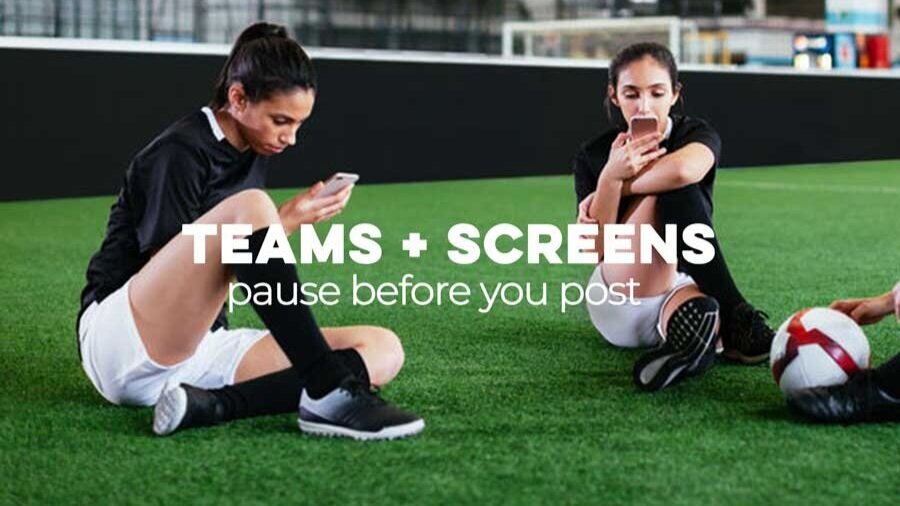


When Tim McCoy, Executive Director of the Pennsylvania West Soccer Association, reached out to share some side effects of how technology is changing the world of youth sports, START was all ears. But then, an incident happened that he could not ignore. We are thankful for his willingness to share it with the START community, in hopes that by standing together, we can rethink ways to keep our kids safe and healthy on the field—and beyond.
As the director of a youth soccer association, I reached out to START to share some observations about how technology is affecting our players and referees. For example, players are often coming off the field and pulling their phone from their gear bag to check for missed calls and texts before getting a drink, or talking to a coach for adjustments. Young referees are using the timer on their phones to track the minutes of a half, and when they check the time, they sneak in a check of their missed messages. In both cases, phones are distracting them from their primary activity of the day: the game.
But recently, I got a phone call from an investigator that changed my thoughts on what I wanted to share.
The police contacted our association after a pedophile was arrested in a major Midwestern city. Following the arrest, the detectives found images of soccer players on the subject’s phone and computer. These children were simply photos saved to a hard drive or photo gallery. The police were reaching out to us to help identify a child through his soccer jersey, make sure the player was safe and to ascertain if the player had had any contact with the individual – because often these pedophiles start with a photo and contact info and then reach out to kids, beginning a grooming relationship. Thankfully, we were able to contact the mother, confirm he was safe and had never been in face-to-face contact with the individual.
Here’s my concern: we know the internet can create isolation for kids. They can be “friends” with hundreds, even thousands, of other kids while not actually capable of being functional in a social setting or really knowing their friends. This isolation combined with the awakening that teens experience can lead to connections with adults who are intent of serving their own needs. Adults looking to harm children can be every bit as tech savvy as a kid and use their skill to create a connection with a child or a number of children. It turns out, there are things the police regularly encounter in similar situations:
1. A player’s club posts photos on the club’s public web site and individuals download and save the pictures of children they like.
2. A club also posts basic info (e.g., name, school, or contact info) about the player allowing individuals to track down and contact players.
3. When they’re contacted – even by someone they don’t know – children who are in an isolated state will often respond to a “friendly” query online.
4. Children who are exploring the new feelings that come with puberty often reach out to friends, including those online, with questions rather than their parents.
This particular incident may or may not have had any of these elements involved. There are any number of other reasons why the individual who was arrested had a photo of a player in a soccer uniform. The police shared that the pedophile said he didn’t remember how he got the photos.
But, for those things I’ve outlined, I would like to suggest there are things that clubs and parents can do to make our players safer from the perils of technology and online communication.
1. Clubs should never publish individual pictures on public sites or open Facebook groups/pages.
2. If a club posts action shots or team photos, do not identify/tag the players in them by name.
3. Clubs should never post contact information for any players in their club.
4. Parents should have a “no limits” conversation policy allowing children to feel safe in asking any question.
Additionally, all parents and clubs should be aware of the growing need for us to mentor our kids in developing healthy screen habits—prohibiting players from using tech at trainings and games, and monitoring its use off the field. We need to work together to reduce the isolation that our kids are experiencing as they overuse technology and social media. If you are looking for a way to start this conversation with your player, check out START’s Rules of Thumb. These are their top recommendations for families and organizations who want to train their kids to have healthy and safe digital habits.
Technology can be many things. It’s a blessing and curse. In youth sports, we need to recognize when the blessing (too much of a good thing) is becoming a curse, and make an effort to minimize the negative side effects that occur if we aren’t intentional.